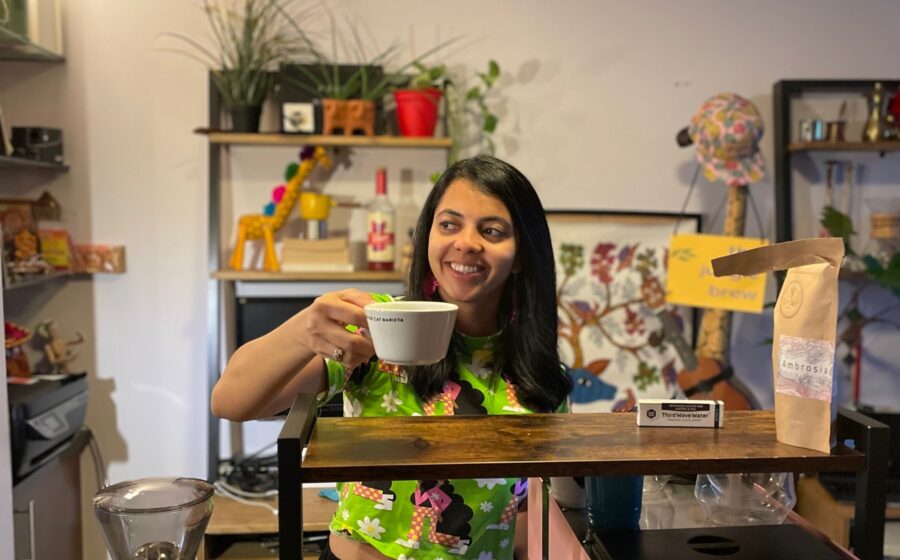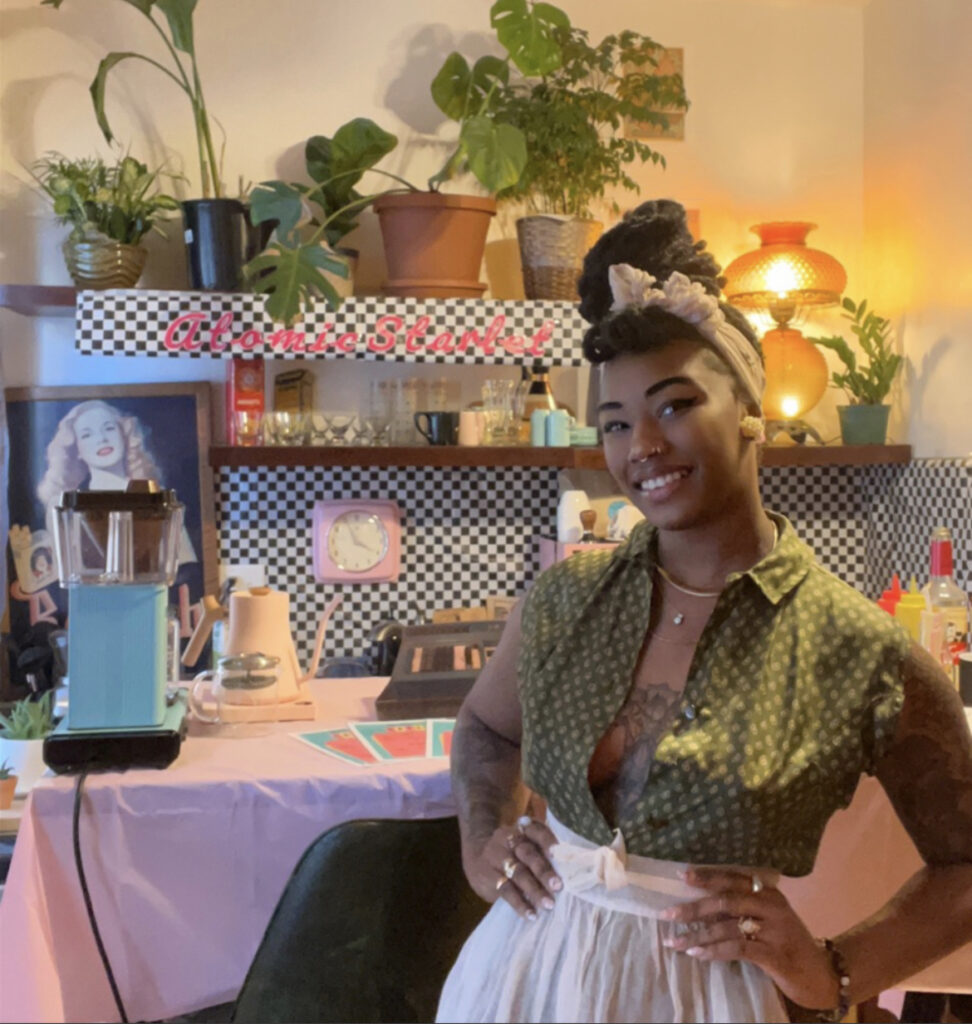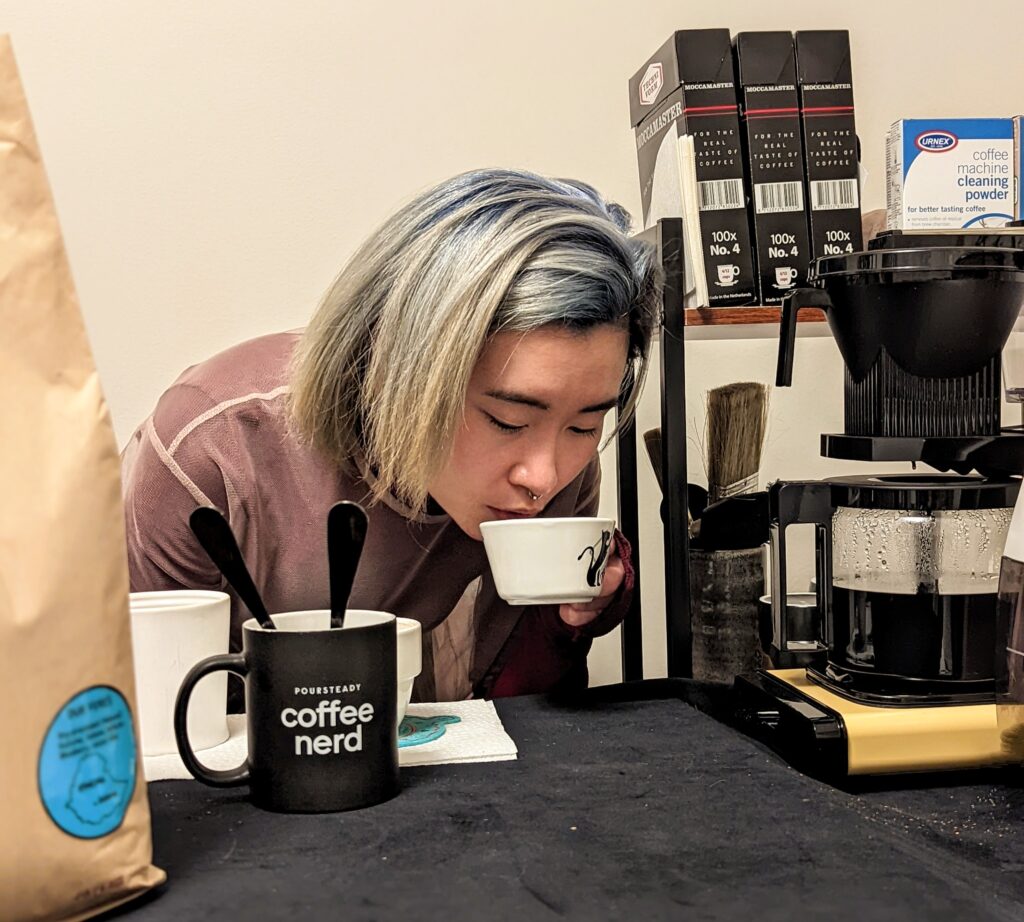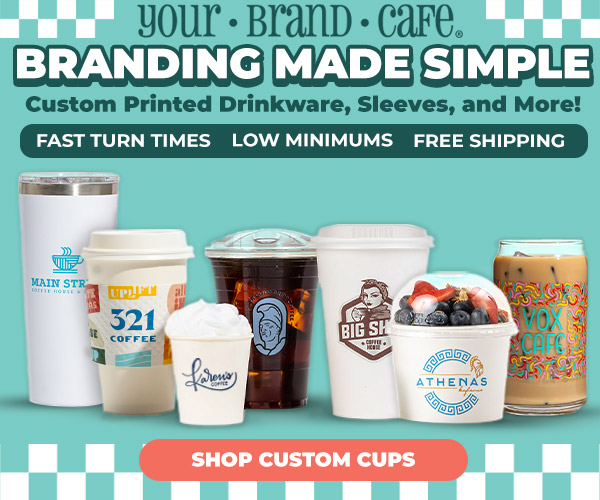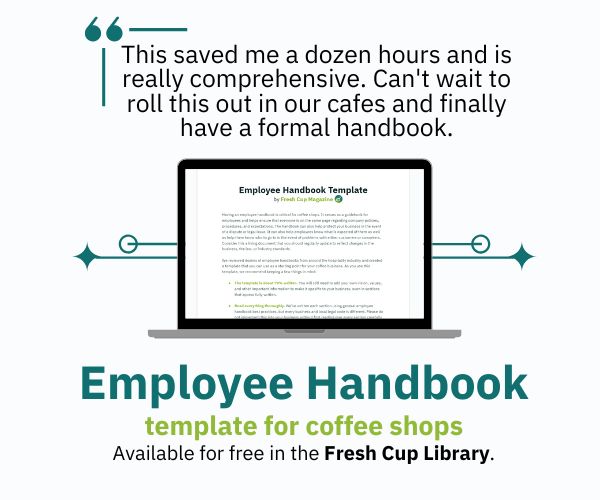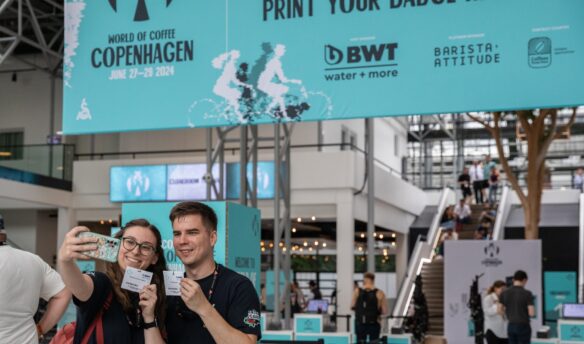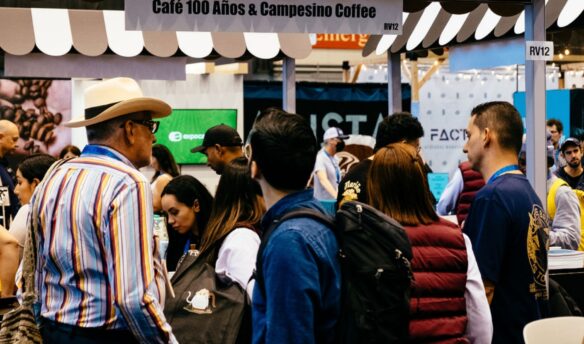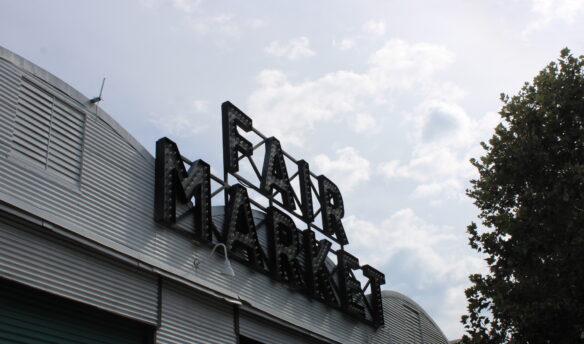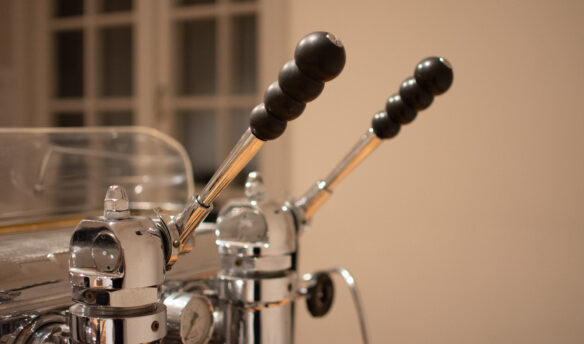Many have returned to hosting in-person events as the world tries to move past the COVID-19 pandemic. From book clubs to lectures to latte art throwdowns and barista competitions to international conferences on every subject imaginable, in-person events are booming.
Meanwhile, COVID-19 is still circulating widely, and in-person events remain out of reach for the immunocompromised and those with preexisting conditions. On top of that, many with disabilities or fiscal limitations—groups that couldn’t always gather in person before the pandemic—found community through digital events during COVID-19 lockdown restrictions and are now losing that access.
Glitter Cat Barista started as a series of in-person bootcamps to help people of marginalized identities prepare for coffee competitions. When it became clear that in-person events would cease, instead of postponing programming, the team at Glitter Cat completely reformulated their events, moving to an online competition that brought joy and excitement to everyone’s timeline. Not only did migrating to a digital platform keep Glitter Cat events alive, but helped them expand their programming beyond competition.
From In-Person to Virtual to Doing it All
Veronica Pearl, founder and Chief Glitter Officer of Glitter Cat Barista, has been in coffee for a decade. She was inspired to start Glitter Cat after taking second place in the 2018 United States Barista Championship, an annual coffee competition, and gaining much wider visibility within the coffee industry.
“I knew I had a platform even without winning, and I also knew I couldn’t compete again if I didn’t do everything I could to address the lack of representation in the United States Coffee Championships,” she says. “So I started asking everyone who would listen to help me put on a competition training program for people of marginalized identities. People were enthusiastic and ready to help make it a reality.”
And they did. Many past winners of the US Barista Championships rely on coaching and resources like free coffee and practice spaces not afforded to all competitors. Glitter Cat aims to bridge that gap and provide high-quality training to coffee competitors of marginalized identities. The top three finalists of the 2022 Barista Championship included two former Glitter Cat participants, a testament to the program’s success.
When the pandemic hit, the Glitter Cat team considered taking a pause but ultimately found the challenges of lockdown were growth opportunities.
“We had built a name on in-person training and community events,” Pearl says. “Not only was it clear that there was a need in our community for competition when it wasn’t safe to gather in person, but it also became evident that we could do a lot more to be accessible in our education and competition opportunities by doing virtual events. By putting on our digital competitions, we reached more people and dismantled many ideas behind what makes a competitor and a coffee professional.”
Virtual events they’ve hosted include two digital competitions: the DiGiTiTiON (2020) and its sequel, the DiGi2TiON (2021-2022)—the name is a mashup of the words “digital,” “glitter cat,” and “competition.” Reformulating to a digital platform meant they could completely transform the competitions—since the 2021 coffee competitions were postponed, the Glitter Cat team developed their own structure and process for how the competition would be judged.
“The DiGiTiTiON was our take on the six United States Coffee Championships (Barista, Brewers, Roasters, Tasters, Latte Art, and Coffee in Good Spirits) with a few quirky twists that made it more fun both to compete and spectate,” she says. “For the DiGi2TiON, we completely restructured, creating a three-round competition over three months, testing competitors’ palates, creativity, and stamina.”
Both events involved shipping equipment and supplies to competitors all over the US. However, they didn’t just stop at coffee competitions: they also created a scratch n’ sniff competition, the SNiFF-i-TiTiON, and mailed game boards to almost 4,000 people in 60 countries, and participants could submit their answers online.
Glitter Cat also expanded its competition focus to include workshops and educational opportunities. “Most recently,” Pearl says, “we held digital workshops for people competing in the United States Barista and Brewers Cup competitions for the first time.”
Still Digital, Still Fun
Pearl notes that virtual events are not easier to host than in-person ones. Organizers should ask themselves how much time, energy, and resources they have to commit. “Virtual events require design, management, creativity, and so much planning,” she says. “Planning and executing the DiGiTiTiON required three months of work, 5-6 days a week, between 6-12 hours a day. The DiGi2TiON required six months [work at that pace]. For a final product that is accessible and appealing to people participating and watching, you’re really busting your booty.”
She also recommends seeing how much help you can enlist. “You truly can’t do this yourself. When we won the Sprudgie Award for Outstanding Event for the DiGiTiTiON, we shared that award with over 100 people, between participants, judges, emcees, and volunteers. It would have been unbearable to try and do it ourselves with occasional help from our cats.”
Glitter Cat is restarting in-person events but isn’t abandoning their virtual ones. “We will continue to have digital events as an essential component of our programming because everybody deserves knowledge, access, and community,” says Pearl.
She cites, for example, that none of the 2022 United States Coffee Championships events were live-streamed. “This suggests that the United States Coffee Championships are predominantly for those physically and financially able to attend those events in person. That’s a huge step backward in accessibility. We will continue to try to set an example for digital accessibility while advocating for better practices from our industry’s governing bodies.”
Even as Glitter Cat moves back to in-person events, Pearl stresses how vital digital spaces have become—and have always been. “Quite simply, digital events remain important because of accessibility,” she says. “The past three years have magnified the fact that many people are being left out of community and career opportunities because of disability, neurodivergence, wealth and resource disparities, geographical location, and so many other circumstances that keep people marginalized and overlooked in a growing industry.”
Glitter Cat shows that digital events can be just as rich and immersive as in-person ones and that pivoting is possible for organizations that traditionally host live events. “Digital events are a way for us to get more information, more opportunities, and more fun for a wider range of people. Reaching people where they are is essential whether or not there’s a pandemic.”

